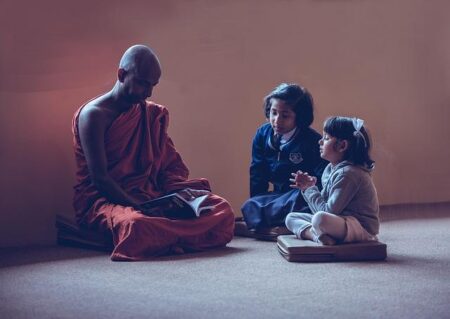France Faces Growing Backlash Over Hijab Bans in Sports: Amnesty International Highlights Human Rights Violations Against Muslim Women and Girls
FranceŌĆÖs stringent policies banning the hijab in sports have sparked fierce criticism and raised urgent questions about religious freedom and gender rights. Muslim women and girls in the country increasingly report feeling suffocatedŌĆönot only by the restrictions on their attire but by the deeper impact on their ability to participate fully in athletic activities. Amnesty International has issued a stark warning, describing these measures as violations of fundamental human rights that stifle both personal expression and access to sports. This article explores the ongoing controversy surrounding FranceŌĆÖs hijab bans and the voices of those most affected by this contentious policy.
France Hijab Bans in Sports Expose Widening Human Rights Violations Against Muslim Women
Restrictions on Muslim womenŌĆÖs athletic participation in France have intensified under recent policies that ban the wearing of hijabs during sports activities, compounding a growing landscape of discrimination. These prohibitions not only curtail personal freedoms but also contribute to social exclusion, forcing many young women to choose between their faith and their right to engage in physical exercise. Sport, traditionally a space for empowerment and community bonding, has become a site of cultural and religious conflict, underscoring systemic inequalities that persist in public life.
Amnesty International highlights the profound impact of these bans, noting that they represent more than a simple dress code dispute. For many affected individuals, the measures result in:
- Reduced access to organized sports and associated health benefits
- Heightened feelings of isolation and stigmatization within educational and community settings
- Infringements on freedom of religion and gender equality
Below is a brief overview of the current restrictions and their consequences:
| Policy Aspect | Effect on Muslim Women |
|---|---|
| Hijabń”üµŁó during sports | Exclusion from teams and competitions |
| Public school enforcement | Limited participation in school athletic programs |
| Social stigma | Increased discrimination and bullying |
Impact of Restrictions on Muslim Women and Girls Participation in Physical Activities
Muslim women and girls in France are increasingly marginalized within sports due to stringent hijab bans imposed by authorities, effectively barring them from participating in many physical activities. These restrictions not only undermine their right to express religious identity but also curtail their freedom to engage in public and communal life. The mere presence of such policies sends a powerful message of exclusion, fueling feelings of isolation and discrimination among young athletes who feel unable to reconcile their cultural values with the established norms of French sporting institutions.
Key consequences of these bans include:
- Significant decline in participation rates of Muslim girls in school sports programs
- Reduced opportunities for social integration and physical well-being
- Erosion of confidence and mental health challenges linked to exclusion
- Increased perpetuation of stereotypes and negative public perception
Recent surveys highlight a worrying trend: over 60% of Muslim girls interviewed expressed feeling forced to choose between their religious beliefs and pursuing sports. This stark dilemma underscores a broader human rights crisis that goes beyond mere dress codes, touching on the core freedoms essential for a diverse and inclusive society.
| Impact Area | Effect |
|---|---|
| Participation | Sharp decrease in active Muslim female athletes |
| Social Inclusion | Growing sense of alienation in school environments |
| Mental Health | Increased anxiety and feelings of exclusion |
| Equality | Exacerbated gender and religious disparities |
Amnesty International Calls for Urgent Policy Reforms to Uphold Religious Freedom and Equality
Amnesty International has sounded the alarm over recent legislative measures in France that severely restrict the rights of Muslim women and girls, particularly regarding the wearing of hijabs during sports activities. These policies not only undermine individual freedoms but also perpetuate discrimination by effectively barring a significant portion of the population from participating in public life, including essential social and physical activities. Witnesses and affected families describe a climate of exclusion and suffocation where young women are forced to choose between their religious identity and participation in everyday pursuits that promote health and well-being.
The organization calls on French lawmakers to implement urgent reforms that align national laws with international human rights standards. According to Amnesty International, fundamental changes should include:
- Repealing blanket bans on religious attire in sports and other public spaces.
- Ensuring equal access to all recreational and social activities regardless of religious background.
- Launching awareness campaigns to combat prejudice and foster inclusion.
These steps are crucial to uphold the values of liberty, equality, and fraternity that France claims to uphold. Without such changes, the social fabric risks further fraying as marginalized groups continue to face systemic obstacles.
Pathways to Inclusive Sports Environments Protecting Cultural Identity and Empowering Marginalized Communities
In France, the ongoing ban on the hijab in sports profoundly restricts Muslim women and girls from participating fully in athletic activities, cutting them off from vital opportunities for physical health, social inclusion, and personal empowerment. This blanket prohibition not only denies them the right to express their religious and cultural identities but also reinforces systemic exclusion within sports institutions. Advocates argue that fostering inclusive environments requires *respecting cultural diversity* and *eliminating discriminatory regulations* that disproportionately impact marginalized communities.
Creating accessible sports spaces means implementing policies that accommodate diverse cultural practices while promoting equality. Key pathways include:
- Collaborative Policy-Making: Engage affected communities directly in shaping inclusive sports regulations.
- Education and Awareness: Train coaches, officials, and organizers on cultural sensitivity and anti-discrimination practices.
- Adaptive Sportswear: Develop and endorse sports uniforms that respect religious dress codes without compromising safety.
- Support Networks: Build community groups that empower Muslim women and girls through sports programs tailored to their needs.
| Challenge | Inclusive Solution | Expected Impact |
|---|---|---|
| Hijab ban prevents competition | Allow approved religious head coverings | Increase participation and representation |
| Lack of cultural awareness | Diversity training for sports staff | Reduce discrimination incidents |
| Absence of safe community spaces | Establish inclusive sports clubs | Boost social cohesion and empowerment |
The Way Forward
The ongoing hijab bans in French sports represent not only a restriction on athletic participation but also a broader infringement on the human rights of Muslim women and girls. As voices like those highlighted by Amnesty International continue to draw attention to these policies, the debate over religious freedom, gender equality, and state secularism in France remains deeply contentious. What is clear is that for many affected athletes, the ability to breatheŌĆöboth literally and figurativelyŌĆöthrough sport has been significantly stifled, prompting urgent calls for inclusive reforms that respect diversity and uphold fundamental rights.




